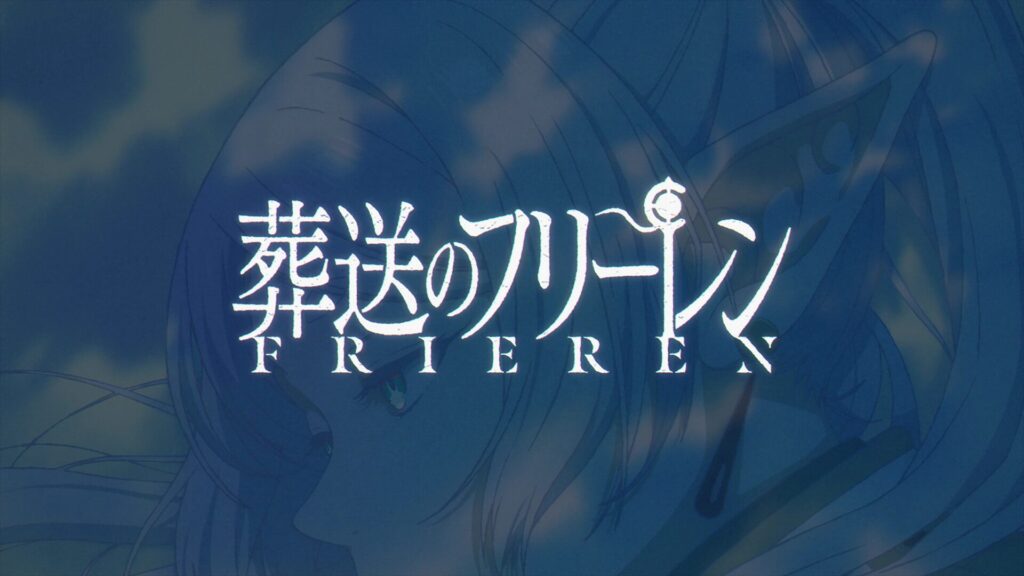
Quote #6 – One Final Adventure
僕(ぼく)はね、 全員(ぜんいん)が そろう この日(ひ)を 待(ま)ち望(のぞ)んでいたんだ。 ありがとう、 フリーレン。 君(きみ)のおかげで 最後(さいご)に とても 楽(たの)しい 冒険(ぼうけん)が できた。
I have lived my life waiting for the day that we would be together once more. I thank you, Frieren. It’s solely because of you that this retired hero could have one final adventure.
ぼくはね、 ぜんいんが そろう この ひを まちのぞんでいたんだ。
ありがとう、 ふりーれん。
きみの おかげで さいごに とても たのしい ぼうけんが できた。
boku wa ne, zen’in ga sorou kono hi o machinozonde itan da.
arigatou, Furīren.
kimi no okage de saigo ni totemo tanoshii bouken ga dekita.
🌟 Waku Waku Word Dive
● ぜんいん(全員) /zen.in/ – Noun
Meaning: Everyone; all members
● まちのぞむ(待ち望む) /ma.chi.no.zo.mu/ – Verb
Meaning: To long for; to eagerly wait for
● おかげ /o.ka.ge/ – Noun
Meaning: Thanks to; because of (positive nuance)
● さいご(最後) /sa.i.go/ – Noun
Meaning: Last; final
● たのしい(楽しい) /ta.no.shi.i/ – Adjective
Meaning: Fun; enjoyable
● ぼうけん(冒険) /bou.ken/ – Noun
Meaning: Adventure
📘 Mini Grammar Boost
~を待ち望んでいたんだ
Ex: この日(ひ)を 待(ま)ち望(のぞ)んでいたんだ
Tip: Used when you’ve been looking forward to something for a long time — “I was waiting for this day.”
~のおかげで
Ex: 君(きみ)のおかげで
Tip: Means “thanks to you” — expresses gratitude or positive cause.
~ができた
Ex: 冒険(ぼうけん)が できた
Tip: Means “was able to [do something]” — used to talk about successfully doing an action.
~とても [adjective]
Ex: とても 楽(たの)しい 冒険(ぼうけん)
Tip: “Very [adjective]” — soft and natural intensifier for feelings or descriptions.
🔀 Slash Reading – Japanese / English
僕(ぼく)はね、 全員(ぜんいん)が そろう この日(ひ)を 待(ま)ち望(のぞ)んでいたんだ。
I’ve been waiting for this day — the day we’d all be together again.
ありがとう、 フリーレン。
Thank you, Frieren.
君(きみ)のおかげで、 最後(さいご)に とても 楽(たの)しい 冒険(ぼうけん)が できた。
Thanks to you, I had one last fun adventure.
Quote #7 – I Never Tried to Understand
だって 私(わたし)、 この人(ひと)のこと 何(なに)も 知(し)らないし。 たった 十年(じゅうねん)、 一緒(いっしょ)に 旅(たび)した だけだし。 人間(にんげん)の 寿命(じゅみょう)は 短(みじか)いって 分(わ)かっていたのに。 なんで もっと 知(し)ろうと 思(おも)わなかったんだろう。
In all truthfulness, I hardly knew anything about him. Ten years with him wasn’t nearly enough to learn. I was aware that human lives are short. But this? Why didn’t I try to… try to better know and understand you?
だって わたし、 このひとの こと なにも しらないし。
たった じゅうねん、 いっしょに たびした だけだし。
にんげんの じゅみょうは みじかいって わかっていたのに。
なんで もっと しろうと おもわなかったんだろう。
datte watashi, kono hito no koto nanimo shiranai shi.
tatta juu-nen, issho ni tabi shita dake da shi.
ningen no jumyou wa mijikai tte wakatte ita noni.
nande motto shirou to omowanakatta n darou.
🌟 Waku Waku Word Dive
● なにも(何も) /na.ni.mo/ – Adverb
Meaning: Nothing; not at all (in negative sentences)
● たび(旅) /ta.bi/ – Noun
Meaning: Journey; travel
● じゅみょう(寿命) /ju.myou/ – Noun
Meaning: Lifespan; life expectancy
● みじかい(短い) /mi.ji.ka.i/ – Adjective
Meaning: Short (in time)
● わかる(分かる) /wa.ka.ru/ – Verb
Meaning: To understand; to realize
● しろうと(知ろうと) /shi.ro.u.to/ – Verb form
Meaning: To try to know; attempt to learn
📘 Mini Grammar Boost
~だけだし
Ex: 一緒(いっしょ)に 旅(たび)した だけだし
Tip: Emphasizes limitation — “it was only [this much]”
~って 分(わ)かっていたのに
Ex: 寿命(じゅみょう)は 短(みじか)いって 分(わ)かっていたのに
Tip: “I knew that…, but still…” — used when expressing regret
~と 思(おも)わなかったんだろう
Ex: 知(し)ろうと 思(おも)わなかったんだろう
Tip: Reflective phrase showing regret — “Why didn’t I try to…”
🔀 Slash Reading – Japanese / English
だって 私(わたし)、 この人(ひと)の こと 何(なに)も 知(し)らないし。
But… I hardly knew anything about him.
たった 十年(じゅうねん)、 一緒(いっしょ)に 旅(たび)した だけだし。
We only traveled together for ten years.
人間(にんげん)の 寿命(じゅみょう)は 短(みじか)いって 分(わ)かっていたのに。
I knew humans had short lives…
なんで もっと 知(し)ろうと 思(おも)わなかったんだろう。
So why didn’t I try to know him better?
Quote #8 – She’d Only Get in My Way
フェルンには 魔法使(まほうつか)いとしての 素質(そしつ)が あります。 あなたの 旅(たび)に 連(つ)れて 行(い)ってくれませんか。 ごめん、 ハイター。 それだけは できない。 足手(あしで)まといに なるから。
Fern has potential as a mage, but needs adequate training. Will you bring her with you and strengthen her skills? Forgive me, Heiter, but I must draw a line. She’d only get in my way.
ふぇるんには まほうつかいとしての そしつが あります。
あなたの たびに つれていって くれませんか。
ごめん、 はいたー。
それだけは できない。
あしでまといに なるから。
Ferun ni wa mahoutsukai to shite no soshitsu ga arimasu.
anata no tabi ni tsurete itte kuremasen ka.
gomen, Haitā.
sore dake wa dekinai.
ashidematoi ni naru kara.
🌟 Waku Waku Word Dive
● まほうつかい(魔法使い) /ma.hou.tsu.ka.i/ – Noun
Meaning: Mage; magic-user
● そしつ(素質) /so.shi.tsu/ – Noun
Meaning: Potential; aptitude
● つれていく(連れて行く) /tsu.re.te.i.ku/ – Verb
Meaning: To take someone along
● あしでまとい(足手まとい) /a.shi.de.ma.to.i/ – Noun
Meaning: Burden; someone who gets in the way
● できない /de.ki.na.i/ – Verb
Meaning: Cannot do; be unable
● たび(旅) /ta.bi/ – Noun
Meaning: Journey; travel
📘 Mini Grammar Boost
~としての [noun]
Ex: 魔法使(まほうつか)いとしての 素質(そしつ)
Tip: Used to describe someone’s role or identity — “as a [noun]”
~てくれませんか
Ex: 連(つ)れて 行(い)ってくれませんか
Tip: A polite way to make a request — “Would you please take [someone]?”
それだけはできない
Ex: それだけは できない
Tip: Means “That alone I can’t do.” Adds emphasis and refusal.
~から
Ex: 足手(あしで)まといに なるから
Tip: “Because…” — gives a reason for the previous statement.
🔀 Slash Reading – Japanese / English
フェルンには 魔法使(まほうつか)いとしての 素質(そしつ)が あります。
Fern has potential as a mage.
あなたの 旅(たび)に 連(つ)れて 行(い)ってくれませんか。
Would you take her with you on your journey?
ごめん、 ハイター。
Sorry, Heiter.
それだけは できない。
That, I can’t do.
足手(あしで)まといに なるから。
She’d only get in my way.
Quote #9 – A Proper Mage
やっぱり、 魔力探知(まりょくたんち)に ほとんど 引(ひ)っかからない。 卓越(たくえつ)した 魔力(まりょく)の 操作(そうさ)技術(ぎじゅつ)だ。 この年(とし)で 一体(いったい)どれだけの 研鑽(けんさん)を 積(つ)んだんだ。 ハイター様(さま)に、 あの 一番岩(いちばんいわ)を 打(う)ち抜(ぬ)けば 一人前(いちにんまえ)になれると 言(い)われました。
It’s true. I can barely detect her presence. Her control over her mana is exceptional. How much could she have studied at such a young age? Master Heiter said, once I’m able to blast a hole in that rock, I’ll be a proper mage.
やっぱり、 まりょくたんちに ほとんど ひっかからない。
たくえつした まりょくの そうさぎじゅつ だ。
この としで いったい どれだけの けんさんを つんだんだ。
はいたーさまに、 あの いちばんいわを うちぬけば いちにんまえに なれると いわれました。
yappari, maryoku tanchi ni hotondo hikkakaranai.
takue-tsu shita maryoku no sousa gijutsu da.
kono toshi de ittai dore dake no kensan o tsunda n da.
Haitā-sama ni, ano ichiban iwa o uchinukeba ichininmae ni nareru to iwaremashita.
🌟 Waku Waku Word Dive
● まりょく(魔力) /ma.ryo.ku/ – Noun
Meaning: Magical power; mana
● たんち(探知) /tan.chi/ – Noun
Meaning: Detection; sensing
● そうさ(操作) /sou.sa/ – Noun
Meaning: Control; manipulation
● けんさん(研鑽) /ken.san/ – Noun
Meaning: Diligent study; discipline
● いちにんまえ(一人前) /i.chi.nin.ma.e/ – Noun
Meaning: Fully qualified; competent
● うちぬく(打ち抜く) /u.chi.nu.ku/ – Verb
Meaning: To blast through; to pierce
📘 Mini Grammar Boost
~に引っかからない
Ex: 魔力探知(まりょくたんち)に ほとんど 引(ひ)っかからない
Tip: Means “to go unnoticed by” or “not caught by.” Used for stealth or avoidance.
~この年(とし)で~
Ex: この年(とし)で 一体(いったい)どれだけの…
Tip: Shows surprise at someone’s skill at a young age — “at this age, how…?”
~ば~なれる
Ex: 打(う)ち抜(ぬ)けば 一人前(いちにんまえ)に なれる
Tip: “If you can do [X], then you’ll become [Y].” Conditional cause-result.
~と言われました
Ex: なれると 言(い)われました
Tip: Polite past passive form — “I was told…”
🔀 Slash Reading – Japanese / English
やっぱり、 魔力探知(まりょくたんち)に ほとんど 引(ひ)っかからない。
It’s true — she barely shows up on mana detection.
卓越(たくえつ)した 魔力(まりょく)の 操作(そうさ)技術(ぎじゅつ)だ。
Her control over her mana is exceptional.
この年(とし)で 一体(いったい)どれだけの 研鑽(けんさん)を 積(つ)んだんだ。
How much has she studied at this young age?
ハイター様(さま)に、 あの 一番岩(いちばんいわ)を 打(う)ち抜(ぬ)けば 一人前(いちにんまえ)に なれると 言(い)われました。
Master Heiter said if I can blast through that boulder, I’ll be a proper mage.
Summary – Saying Goodbye After the Hero’s Journey
僕(ぼく)たちは 魔王(まおう)を 倒(たお)した。
We defeated the Demon King.
でも、 それで 終(お)わりじゃ なかった。
But that wasn’t the end.
長(なが)い 人生(じんせい)が、 これから 始(はじ)まったんだ。
A long life was just beginning.
フリーレンは、 仲間(なかま)と 一緒(いっしょ)に 過(す)ごした 十年(じゅうねん)を 思(おも)い出(だ)していた。
Frieren was remembering the ten years she spent with her companions.
時(とき)が 経(た)つほど、 彼(かれ)らの 意味(いみ)を 深(ふか)く 感(かん)じるように なっていった。
As time passed, she began to understand just how much they meant to her.
人間(にんげん)の 寿命(じゅみょう)は 短(みじか)い。
Human lives are short.
だからこそ、 一緒(いっしょ)に 過(す)ごす 時間(じかん)は 大切(たいせつ)なんだ。
That’s why the time we spend together is so important.
今(いま)、 彼女(かのじょ)は 新(あたら)しい 冒険(ぼうけん)に 出発(しゅっぱつ)する。
Now, she sets off on a new adventure.
過去(かこ)と 向(む)き合(あ)いながら、
While facing the past,
少(すこ)しずつ、 人(ひと)を 知(し)ろうと していく。
She begins, little by little, to understand others.
🌟 Key Words & Phrases
● すごす(過ごす) /su.go.su/ – Verb
Meaning: To spend (time)
● じゅみょう(寿命) /ju.myou/ – Noun
Meaning: Lifespan; life expectancy
● たいせつ(大切) /tai.se.tsu/ – Adjective
Meaning: Important; precious
● むきあう(向き合う) /mu.ki.a.u/ – Verb
Meaning: To face; to confront (emotion, truth, person)


